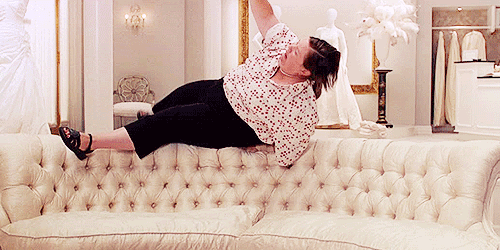I had no idea how to save my money when I was in college. I had no real experience with money, no history of credit, no idea how finances worked in the real world. My advice three years out: start saving now.
There’s a lot of stuff you’re probably doing already that saves money. Like cooking your own meals, or opting for brew-at-home coffee instead of Starbucks. But here’s some more advice so you can get out of college with a little nest egg.
1. Understand your student loans

Photo courtesy of debt.org
This is probably the most important thing you should know in college. But it’s hard to find any guidance on student loans when loan providers would rather you not know all the details. Take the time to talk to your financial aid office. Trust me, no question is dumb when it comes to potential debt.
A few things I’ve learned:
- When you start getting billed for your student loans, any money you put toward your loans will be first applied to the interest, not the principal balance. What does this mean? It means you’re not even touching the part that accrues interest and you could end up paying more, for a lot longer.
- Start paying off your loans now. It will help decrease the amount you have to pay later. If you don’t think you can do that, baby steps. Try $50 or even $20 a month and see if that’s manageable. Increase it from there if you can.
- Don’t take out any more than you need. Just don’t do it.
2. Try budgeting
Personally, I do not have the attention span for what is traditionally called “budgeting.” My budgeting system is just to assume I have no money to spend and then not spend money.
Create a budgeting system that works for you. Whether it’s giving yourself an allowance, creating a spreadsheet, using an app or something else. The key is to be realistic about the money that you do have, and being mindful about how you’re using it.
3. Think about getting a credit card…

Gif courtesy of giphy.com
I know this may seem counterintuitive. Why would I advocate college students get credit cards? They’re dumb! They’ll rack up so much debt! No, you won’t.
Here’s the secret to being a responsible credit card owner…don’t spend money you don’t have. Use your credit card for things you know you’re already going to buy, like gas and food. Nerdwallet lists four really good credit cards for students.
Having a credit card now will help you establish good credit, which you’ll need when you want to rent an apartment and other adult-like things.
If you know that you will not be able to make payments on time, that you will spend more than you have, etc. do not get a credit card. Don’t make me come over there with the scissors.
4. Get a job

Photo courtesy of tumblr.com
My mom didn’t want me to have a job while I was in school because she thought it would distract me from my studies. I tried subsisting on my summer earnings for three years before I finally got a job in college.
I got a job at my school’s writing center and it was the best decision I ever made in college, besides trying sushi for the first time and giving up shots (they’re gross and I hate them and you can’t make me).
I worked minimum wage and (at max) 15 hours a week, but just having that little bit of extra money come in every two weeks was great, and most of the time I was getting paid to do my homework. Plus, there are so many other perks to working in college.
5. Don’t buy textbooks
Gif courtesy of giphy.com
Rent, or borrow. Textbooks are expensive as hell and when you try and sell them back you maybe get $20 for a $120 book you barely used.
I discovered that the library had half of my textbooks for the semester on their shelves my sophomore year and I never looked back. This absolutely will not work for all majors, I’m talking to you science and math guys, but rental is still a way cheaper option.
If you’re still stuck with hundreds of dollars worth of books and you want to try your hand at a little entrepreneurialship (this is now a word; I just made it up, that’s how words work, Frindle) set up an Amazon seller account or see if your campus has a Facebook group for selling textbooks.
I started posting my books on Amazon because I hated selling them back at a loss. I’m still selling books back, but every once in a while I get to mail a book (ask for the media mail rate) and receive a few extra dollars in my wallet.
6. Pay yourself

Gif courtesy of tumblr.com
Get into the habit of saving money every month. It doesn’t have to be the same amount, it doesn’t even have to be big. Hell for half a year I only saved spare change. But when Spring Break rolled around and I could pay for alcohol with all the change I put in my piggy bank, I felt so rich.
7. Apply for scholarships

Gif courtesy of giphy.com
This is one of the biggest mistakes I made throughout college, never applying for scholarships. On paper, I look average (obviously, in real life I’m super awesome) so I didn’t think I would qualify for any scholarships. Turns out that’s not true. There are literally millions of scholarships out there and most of them require you to sign up… and that’s it. Even if the payout is $100, it’s still $100 free dollars.
9. Drink less, or drink smart

Photo courtesy of wobm.com
Most college students will not forego drinking and that’s fine. But did you know that on average college students spend $5.5 billion on alcohol? So cheers to drinking on a budget:
- Buy in bulk. You can buy alcohol from Costco without a membership (this is not universal, ask customer service if you’re not sure). The person at the front checking member cards probably doesn’t know this so tell them you’re there to buy a membership and they will leave you alone
- Pregame, pregame, pregame. Drink these!
- Don’t order alcohol at a restaurant. It is usually marked up to an insane degree
- Leave your debit/credit card at home when you go to the bars. If you only bring cash, your drunk self can’t convince you that you need that extra drink. Your liver and your wallet will thank you
10. Don’t spend money on decor

Gif courtesy of tumblr.com
Ask friends and family for hand-me-downs, troll Facebook for anyone selling off stuff after graduation, shop at Goodwill.
College is not permanent, most of the stuff you’re using now you won’t need as soon as you throw your cap in the air. I know it’s tempting to try and make your place look super fancy or nice because it’s your first place but you won’t remember the way your first apartment’s living room looked with the mismatched couches and the weirdly shaped coffee table.



